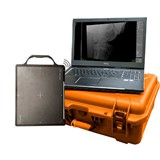Dr Jenny Proimos, President of the RACP’s Paediatrics & Child Health Division said children and adolescents differed in many ways to adults, including their size, physiology, the type of conditions and diseases they suffer from, and the treatments, medical equipment and pain management strategies required to deal with them.
“To ensure the best outcomes for younger patients, the physical and medical differences between children / adolescents and adults need to be recognised, and appropriate, specialist training and facilities provided.”
“Placing children and adolescents alongside adults in general wards exposes them to risk from a number of directions, potentially increasing the chance of medical misadventure, unintentional neglect or even abuse from other patients.”
Dr Proimos said it’s not just a matter of medical needs and safety, the psychosocial support needs of children and adolescents, especially disabled young adults, differ from those of adults, and are highly dependent on age and stage development.
“Children and adolescents respond to the hospital environment in completely different ways to adults, requiring age-appropriate communication practices, greater involvement of parents and families in hospital care, and facilities to support play or leisure activities and education.”
The RACP’s policy, released at its annual Physicians Week congress in Sydney today, states that by accommodating children and adolescents in age-appropriate areas ensures that:
- Children’s rights are acknowledged and respected
- Child and family friendly health service facilities are provided
- Equipment is the correct size and design
- Trained staff are available and children/adolescents are safe while they are in hospital.














-160x160-state_article-rel-cat.png)




